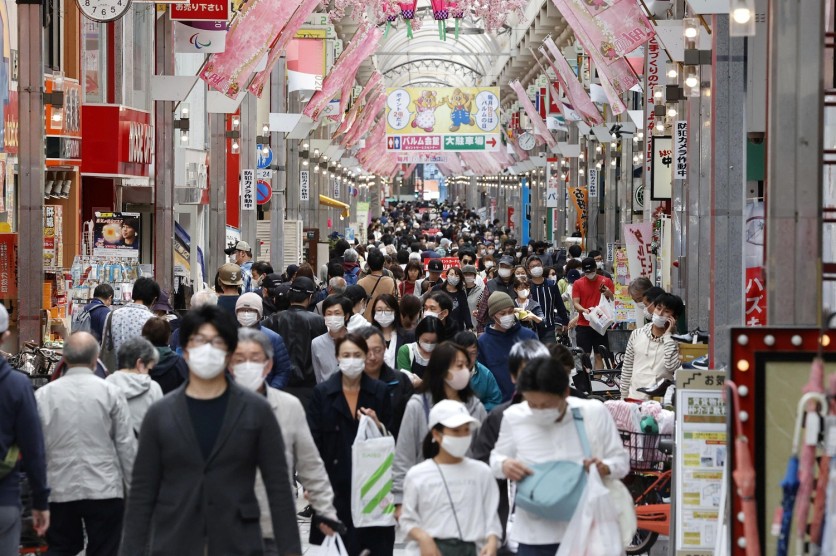
A health expert has recently warned that the health system in Japan may collapse if the country does not step up to contain the coronavirus.
As the effect of the pandemic has increased, Professor Kentaro Iwata has again criticized the country's failure to switch its approach to manage the virus.
'The system is on the verge of collapse in many places in Japan,' said Iwata. He also said that the country could control the virus until the next summer.
Japan now has a total of 10,751 confirmed COVID-19 cases, with 171 recorded deaths. The whole country is now under a state of emergency, which started in seven regions last month.
However, Iwata said the country failed to change its strategy after the outbreak recently intensified. Initially, Japan applied limited testing and intensive contact-tracing, which worked well when the numbers were still small.
'We needed to prepare for once the situation changes, once the cluster-chasing became not effective and we needed to change strategy immediately,' Iwata said.
However, he also acknowledged the country's weakness as "Japan is traditionally not very good at changing strategy." "We are very poor at even thinking of plan B because thinking of plan B is a sign of admitting the failure of plan A,' said Iwata.
Prime Minister Shinzo Abe has urged residents to reduce contact with other people, which led to a significant drop in the number of people using Tokyo's transport system.
However, even as medical groups warn the struggle of the country's healthcare system, people are still going out while many shops and restaurants remain open.
The Japanese government asserts it has adjusted its strategy, including boosting testing capacity, requiring all positive cases to remain in hospitals, and imposing the state of emergency to control the spread of the virus.
Not enough
Medical experts claim the government measures are not enough.
With the new rules, Haruo Ozaki, president of the Tokyo Medical Association, warned that hospitals are now cramped and lack beds for new patients.
'Beds for novel coronavirus patients continue to be almost full,' said Ozaki last week.
Although the association has been increasing beds, numerous cases are coming in every day, so 'beds are being occupied instantly'.
Also, Ozaki acknowledged that some hospitals had turned away suspected COVID-19 patients. He adds that Japan has not yet fostered a new system that would allow ordinary hospitals to take infectious disease patients during an emergency, particularly "when designated hospitals can't cope."
Worse, hospitals are also struggling with equipment shortages. The mayor of Osaka has pleaded for donations of unused raincoat after health workers were forced to use garbage bags as protective equipment.
Both Iwata and Ozaki said that placing the country under a state of emergency until at least May 6 was insufficient.
Ozaki criticized the government for allowing stores to remain open while border controls and social distancing are being implemented.
Meanwhile, Iwata said his "biggest fear" was to have a New York-like "explosion of diagnoses... which didn't happen".
'These numbers are much better than the worst-case scenario,' he added.
The Diamond Princess quarantine
Earlier this year, Iwata made headlines as he publicly criticized Japan's management of the Diamond Princess Cruise ship that anchored along the country's coast. The ship was immediately quarantined upon its arrival in Japan on Feb. 5.
However, out of 3,711 passengers and crew, over 700 people tested positive of COVID-19, while 13 have died within a month after the first case was recorded on Feb. 1.
Just hours before the lifting of the 14-day quarantine, Iwata released a 12-minute video where he mentioned how chaotic the situation is the ship was. He pointed out the lack of a clear distinction between the "infection-free" and "potentially contaminated" areas. This led to the quick transmission of the virus as people were going between these zones.
On Feb 17, Japanese public health expert Shigeru Omi defended the strategy in a press conference. "Japan's decision, at that time, to quarantine the passengers was appropriate and justified," said Omi, the head of Japan Community Health Care Organization.
Tokyo Olympics
The 2020 Tokyo Olympics was postponed until July 2021 after appeals from athletes and sports federations.
However, Iwata said he does not think it can push through next year.
He adds that holding the Olympics needs two conditions, which include "controlling COVID-19 in Japan and controlling COVID-19 everywhere because you have to invite the athletes and the audience from all over the world."
Instead, Iwata said the Olympics could be held next year if the game activities will be significantly altered 'such as no audience, or very limited participation'.
ⓒ 2025 TECHTIMES.com All rights reserved. Do not reproduce without permission.




